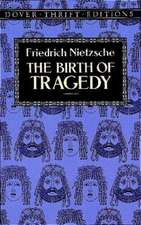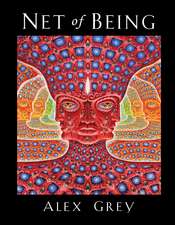Beyond Good and Evil
Autor Friedrich Nietzscheen Limba Engleză Paperback – 14 mai 2007
Although he qualifies his views as opinions rather than facts and asks his readers to examine his premises critically before agreeing with his views, Nietzsche leaves no doubt that he is confident that all previous philosophers were wrong about important precepts and he alone is right. His criticism of his immediate predecessors is somewhat more restrained than in some of his other works and directs his harshest criticism at Plato for his fabrications of "Pure Spirit and Transcendental Goodness."
Nietzsche was fervently opposed the prevailing religious concepts of morality. His reputation as being anti-Christian was, and still is, sufficient grounds to inspire considerable criticism of his philosophy. As much as his critics might disagree with Nietzsche's philosophy, they cannot simply dismiss it. Nietzsche intelligence and persuasiveness make him a formidable figure in field of moral philosophy. His influence on modern philosophical theory is considerable and it is likely that his contributions will continue to inspire controversy for some time to come.
Preț: 92.59 lei
Nou
Puncte Express: 139
Preț estimativ în valută:
17.72€ • 18.55$ • 14.66£
17.72€ • 18.55$ • 14.66£
Carte disponibilă
Livrare economică 15-29 martie
Preluare comenzi: 021 569.72.76
Specificații
ISBN-13: 9781934255117
ISBN-10: 1934255114
Pagini: 176
Dimensiuni: 152 x 229 x 10 mm
Greutate: 0.27 kg
Editura: El Paso Norte Press
ISBN-10: 1934255114
Pagini: 176
Dimensiuni: 152 x 229 x 10 mm
Greutate: 0.27 kg
Editura: El Paso Norte Press
Notă biografică
German philosopher and philologist, Friedrich Nietzsche, was one of the most influential thinkers of our time. His works include critical texts on philosophy, science, cultural norms, religion and morality. His aim was the "truth" as he saw it, no matter how unpalatable, penned in a style characterised by metaphor and aphorism.
Descriere
Descriere de la o altă ediție sau format:
`What is done out of love always takes place beyond good and evil.' Always provocative, the Friedrich Nietzsche of Beyond Good and Evil (1886) is at once sceptical psychologist and philosopher-seer, passionately unmasking European society with his piercing insights and uncanny prescience. This masterpiece of his maturity considers quintessential Nietzschean topics such as the origins and nature of Judeo-Christian morality; the end of philosophical dogmatism and beginning of perspectivism; the questionable virtues of science and scholarship; liberal democracy, nationalism, and women's emancipation. Written in his most masterful style, full of irreverence and brio, Nietzsche dissects self-deluding human behaviour, bankrupt intellectual traditions, and the symptoms of social decadence, while at the same time advancing an extra-moral wisdom to be shared by those kindred soul who think 'beyond good and evil'. This new translation of Beyond Good and Evil provides readers with a true classic of modernity that sums up those forces and counterforces in nineteenth-century Western Civilisation that to an astonishing degree have also determined and continue to inform the course of our own century. ABOUT THE SERIES: For over 100 years Oxford World's Classics has made available the widest range of literature from around the globe. Each affordable volume reflects Oxford's commitment to scholarship, providing the most accurate text plus a wealth of other valuable features, including expert introductions by leading authorities, helpful notes to clarify the text, up-to-date bibliographies for further study, and much more.
`What is done out of love always takes place beyond good and evil.' Always provocative, the Friedrich Nietzsche of Beyond Good and Evil (1886) is at once sceptical psychologist and philosopher-seer, passionately unmasking European society with his piercing insights and uncanny prescience. This masterpiece of his maturity considers quintessential Nietzschean topics such as the origins and nature of Judeo-Christian morality; the end of philosophical dogmatism and beginning of perspectivism; the questionable virtues of science and scholarship; liberal democracy, nationalism, and women's emancipation. Written in his most masterful style, full of irreverence and brio, Nietzsche dissects self-deluding human behaviour, bankrupt intellectual traditions, and the symptoms of social decadence, while at the same time advancing an extra-moral wisdom to be shared by those kindred soul who think 'beyond good and evil'. This new translation of Beyond Good and Evil provides readers with a true classic of modernity that sums up those forces and counterforces in nineteenth-century Western Civilisation that to an astonishing degree have also determined and continue to inform the course of our own century. ABOUT THE SERIES: For over 100 years Oxford World's Classics has made available the widest range of literature from around the globe. Each affordable volume reflects Oxford's commitment to scholarship, providing the most accurate text plus a wealth of other valuable features, including expert introductions by leading authorities, helpful notes to clarify the text, up-to-date bibliographies for further study, and much more.
Cuprins
Beyond Good and Evil Introduction
Further Reading
Translator's Note
Further Reading
Translator's Note
BEYOND GOOD AND EVIL
Preface
Part One: On the Prejudices of Philosophers
Part Two: The Free Spirit
Part Three: The Religious Nature
Part Four: Maxims and Interludes
Part Five: On the Natural History of Morals
Part Six: We Scholars
Part Seven: Our Virtues
Part Eight: People and Fatherlands
Part Nine: What Is Noble?
From High Mountains: Epode
Commentary
Chronology



























